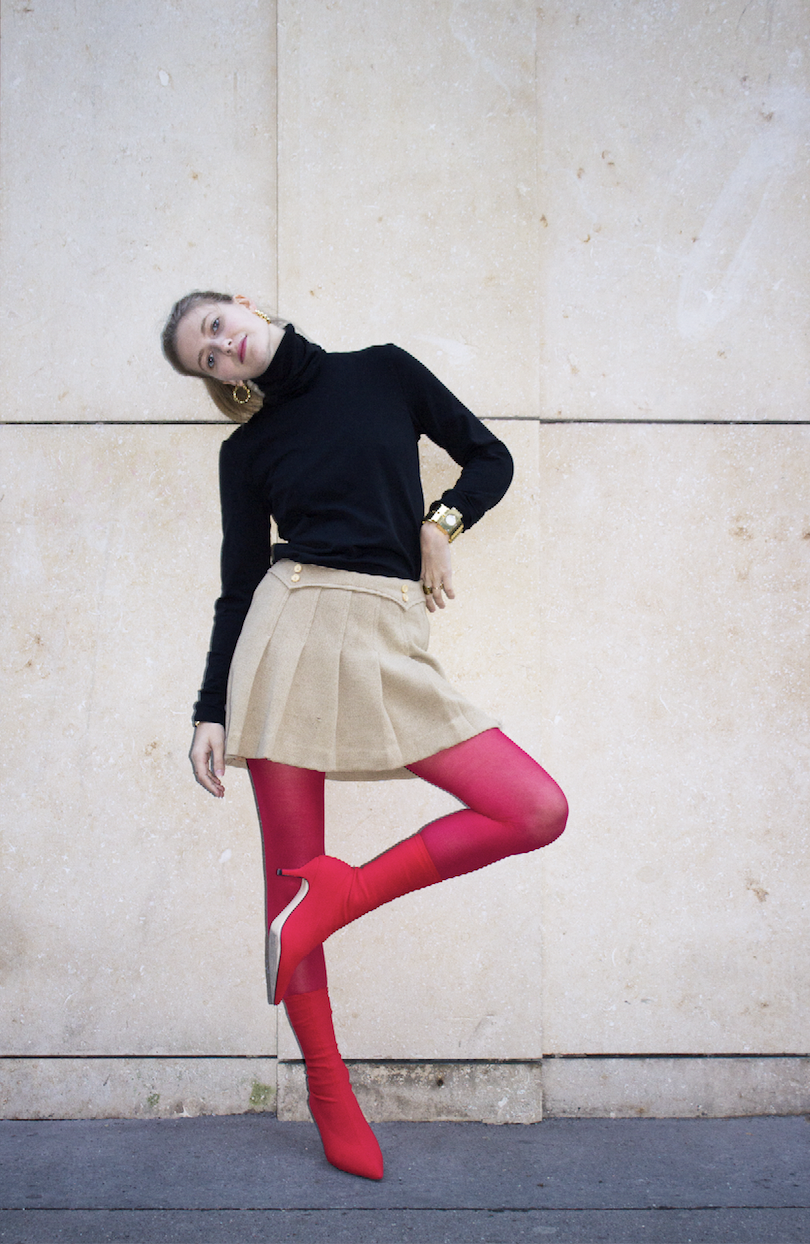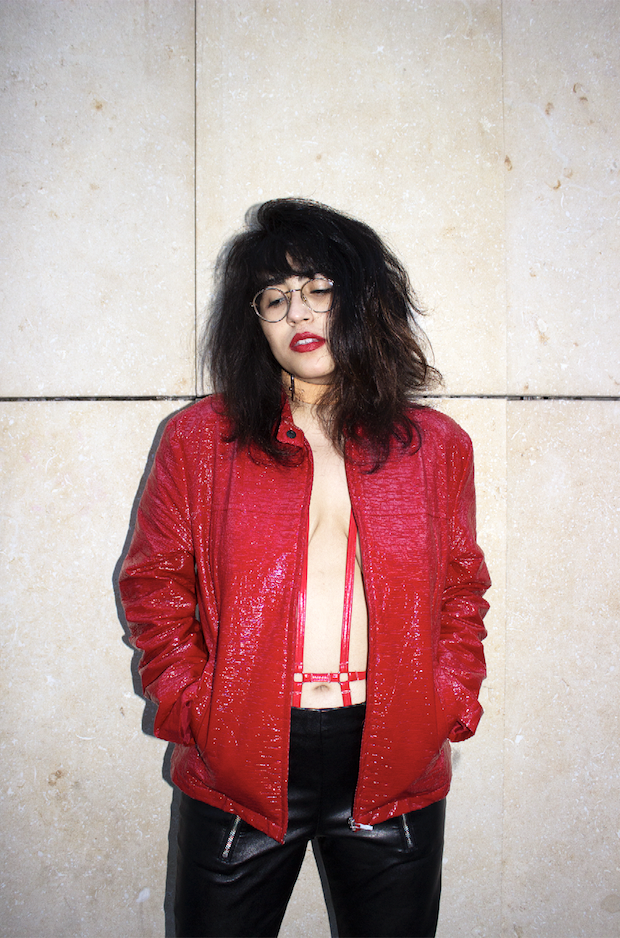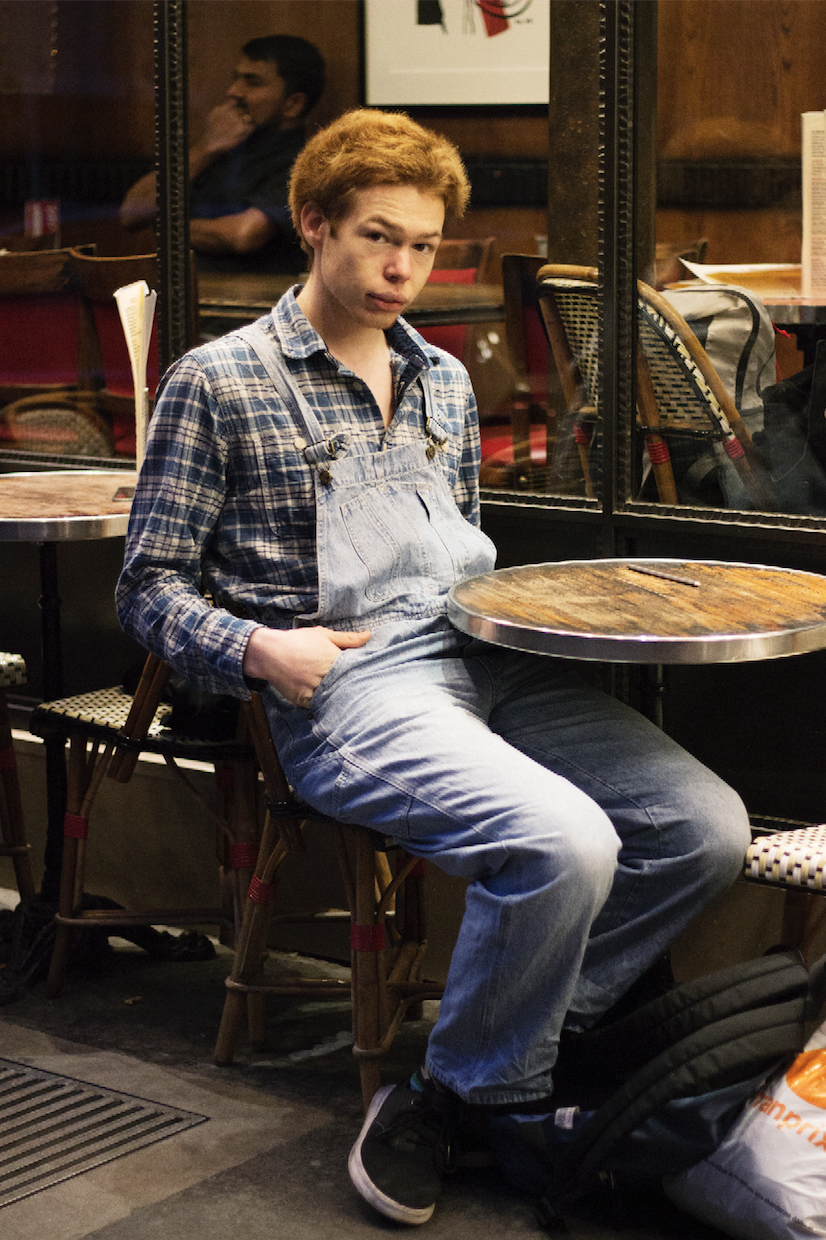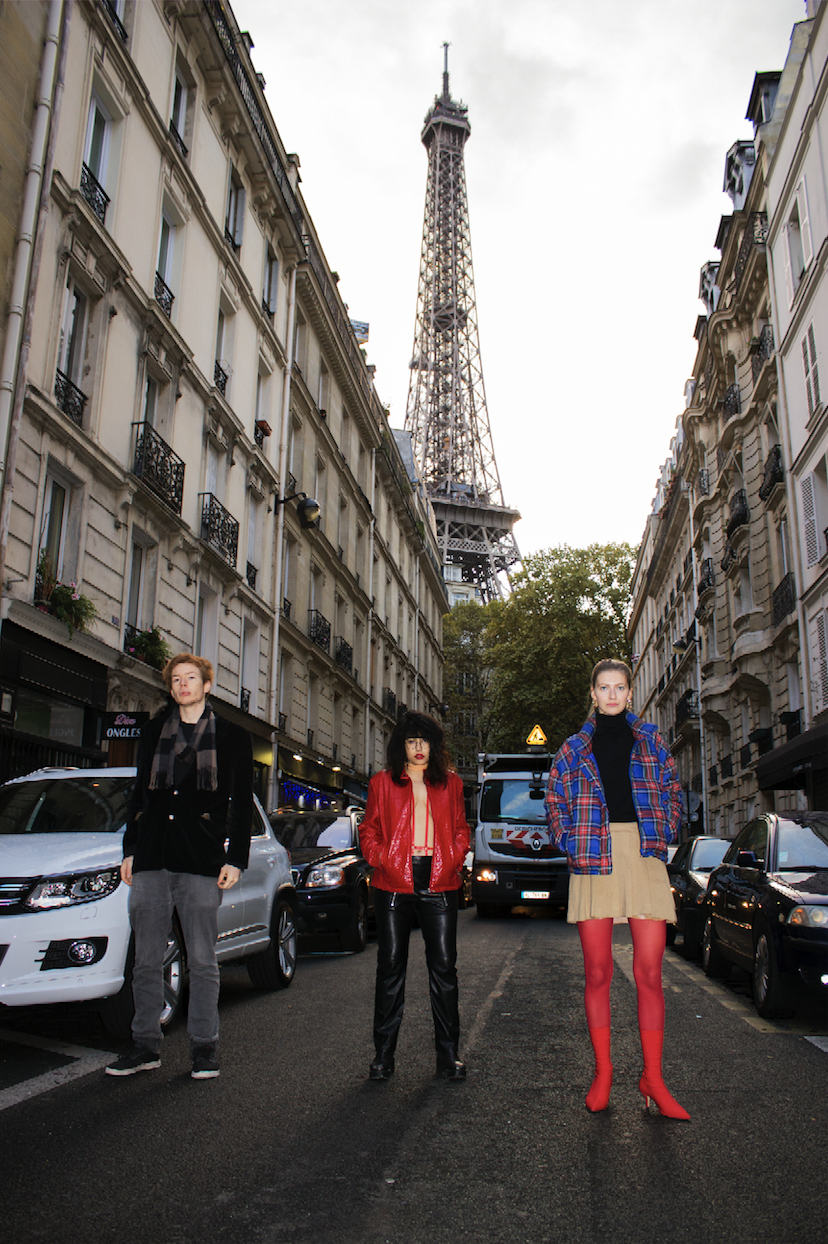Do You Look Good Enough for Paris?
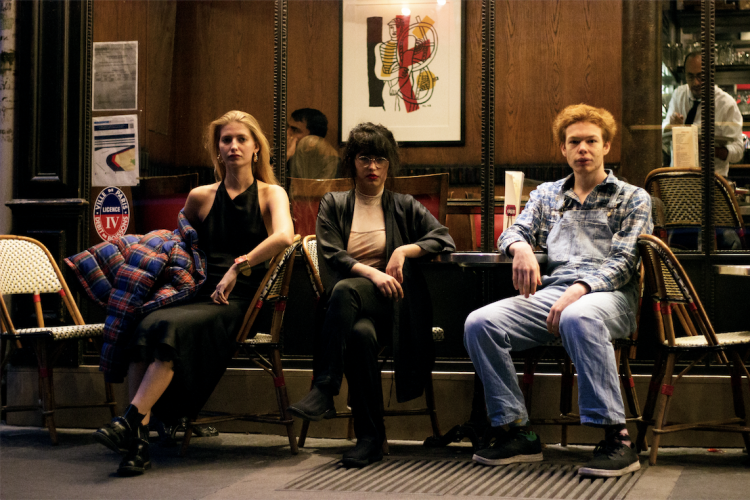
Paris is widely considered the fashion capital of the world. People dream of coming to this beautiful city and making it big in the fashion world, hitting the streets with their own personal sense of style, and feeling a sense of total artistic freedom—ultimate self-expression that feels too good to be true.
Unfortunately, many find quickly that Paris, in fact, has its own dress code, and Parisians make sure that anyone who steps outside of it knows that they are doing so.
But what really is the Parisian fashion archetype? Clothilde Morin is a 21-year-old student at The American University of Paris (AUP) who was born and raised in the Paris area. As a seasoned Parisian, she describes the mentality of her fellow citizens, saying “99 percent of Parisians don’t care about fashion ‘with a capital F,’” that is, to say, the trends that characterize fashion. “Parisians don’t really follow trends at all; we focus more on the way that we are wearing something. It’s always very elegant.”
For women, a normal outfit consists of “a pant, a pullover or jacket, and a scarf. It is always very simple.” Men often “have less choices. Usually it is a three or two-piece suit with a shirt underneath, or a jean with a shirt and a t-shirt for a more casual look. They dress almost always how they dress for work.”
Not many cultures fit into these strict style regulations—especially for an American, who comes to Paris used to the anything-goes nature of the daily sartorial culture of their homeland. Therefore, the first few months are often accompanied by a sense of isolation. It is obviously difficult to feel like an outsider in a new home, as Parisians tend to make it obvious that newcomers are not a part of their city.
This sartorial persecution can be truly painful the first time it is experienced. This style crisis is difficult for all, especially when one associates style with a sense of identity. Although the way in which these experiences influence each new arrival’s fashion sense is unique, everyone is emotionally affected by it. Direct comments and stares from passers-by are one of the common forms of judgment. 21-year-old American student Rachael Creger, from Charleston, South Carolina, opened up about how this rejection manifested itself during her first couple months in Paris. She remembers wearing, “a plaid miniskirt with platform sandals and a sweater,” while she was going out to a movie with a friend. “Not only did I get a bevy of unsolicited, inappropriate comments from men, but many heavy stares from Parisian women for having my legs exposed.” These comments and stares go deeper than male perversion, as they extend to women’s obvious disapproval. As trivial as they might sound, snarky comments and stares have a huge impact on how people feel about themselves. “It made me feel really bad, really upset. I didn’t think it was fair for them to infringe on my state of mind like that,” explains Creger.
Image credit: Katerina McGrath
Unfortunately, the reactions can get more extreme with the clothes. Victoria Suds, a 23-year-old from New York City, describes how difficult it can be to express an interest in niche fashion in Paris; that is, fashion that is a bit subversive. Reflecting on her alternative style, she says, “I normally don’t think of myself as a freak,” adding, “I have a lot of friends very deep in the fetish world or the techno/house world which I dabble in and enjoy, but here I really feel like a freak.” She has an array of techno and fetish attire, but simply “just wearing a [BDSM] collar will get me the weirdest reactions and comments.” She describes one of the worst reactions she had gotten from an outfit, when she was at a French house party. “Someone approached me, friendly at first, asking me about the collars I wear, whether I’ve ever had BDSM experiences, if that’s part of my life at all.” She was happy to respond, explaining that she was simply “looking for love, truly.” His response was one of disgust, saying that she “shouldn’t being wearing things ‘like that’ if I’m looking for love.” It was an “awful experience,” to say the least. For this reason, she thinks that Paris has left a bigger impression on her than “any other city.” As soon as she began to travel across Europe, specifically to Berlin and London, she began to “feel more comfortable in my differences.”
Image credit: Katerina McGrath
For those who are less interested in the fashion world, experiences of alienation derive simply from their own observations and comparisons. Ellis Carter, a 20-year-old Texan who has spent two years in Paris, confessed that, “watching people with extremely chic clothing makes me feel a little out of place—like I shouldn’t be wearing the clothes that I wear.”
In defense of her fellow Parisians, Morin explains that they don’t even realize that they care about dressing well or how others dress; “It’s really just the culture, the fact that you live in Paris, where Coco Chanel said, ‘Fashion is something in the air.’ That something in the air is luxury, creativity, and elegance.”
In the face of this energy, should new habitants of Paris adapt to these fashion norms and let go of who they are? Or should they risk negative reactions as soon as they step outside of their apartments? As fashion provides a vehicle for expressing identity, it is important to stick to one’s true self, keeping in mind that adapting to your surroundings (to an extent) is also healthy.
Different people have different ways of dealing with social pressures. The lesson to be learned is one of the utmost importance—no matter what you wear when you leave the house, it should be a reflection of who you are. Parisians go by their own code to reflect this, possibly paralleling the elegance stereotypical of their homeland. Morin says, “When we dress like shit, it doesn’t look like shit. It’s going to be the simplest outfit we have, but it will still look elegant,” Morin clarifies.
If you are someone who feels more comfortable in your situations by adapting to them, consider delving into the chic and serious style of the Parisians. After three years in the city, Creger has spent a lot of time walking around Paris. Her solution to feeling comfortable was to adapt her style to her surroundings. She shared, “I definitely conformed to something more acceptable for Paris.” Specifically, Paris brought out “a level of androgyny in the way I dress,” she disclosed. “It’s a lot less sweet.” However, her adaptation has not filled Creger with a sense of having sacrificed her self-expression. She has embraced the development of her style, explaining that “it’s not something that I do with an internal protest.” She has found a way to wear balance Parisian fashion with “the pieces that make me feel like the fullest version of myself,” which she claims has made all the difference in her comfort in the city. For Creger, a sense of approval from Parisians, “can be really rewarding when you need a bit of a boost,” as long as she stills feels herself.
For some, adaptation is a way to assimilate into a new culture, and can be a positive experience. However, appreciating style, and dressing well for yourself, doesn’t require such a heavy interest in, and analysis of, fashion.
Image credit: Katerina McGrath
Feeling underdressed in Paris is common, but those who are not interested in delving into the fashion world experience this on a far greater scale. If there is one way to feel better about dressing casually in Paris, it is to stop comparing oneself to the stellar fashionistas of Paris. Wearing something that you like should make you feel good, as opposed to dressing based on others’ expectations. Carter exemplifies this perfectly, sharing, “Button-down shirts with collars and nice patterns make me feel nice. Oh, and you can’t forget the crazy socks. That is who I am.” Although he experiences feeling underdressed through his observation of Parisian fashion, he realizes that his style is something that reflects himself well enough already, and therefore, he doesn’t feel the need to conform to the fashion norms in Paris. “I’m not very confident in the way I dress,” he explains, “but I enjoy the way that I dress.”
Carter has expanded upon his interest and knowledge of the fashion world after living in Paris, but leaves the fashion to those who really care what others think. “I personally feel fine walking around in Paris,” he says. Carter is an example of someone who can enjoy fashion from afar, but does not feel the need to assimilate.
Practicality and simplicity rule his wardrobe, aside from the occasional night out when he would like to look fancy. But even then, his interpretation of “fancy” is unique to him, and he dresses fancy to make himself feel good.This acceptance of self without considering what is fashionable leads to less pressure for some.
Conversely, some people truly feel themselves the most when they stand out in a crowd. What can be learned from this is that not all negative attention has to be a negative experience—what is offensive to one person is genius to another. Often, there is a parallel between true self-expression and self-confidence; developing personal style leads to the ultimate confidence boost, as described by Suds. She shares, “the amount of shit I’ve gotten from wearing certain things in certain places has really increased my self-love. I’ve had to defend the things I wear, and through that I understand why I wear what I wear. My understanding of that has made me feel really confident.”
Suds, unlike many people who receive negative reactions, finds a sense of liberation in feeling different. She believes that adapting to these fashion norms would sacrifice her sense of identity. “I guess living in Paris has made me more experimental and has made me want to go out in a really daring outfit because I know I won’t see very many people in it,” Suds explains. Furthermore, “when I do see people in a really creative outfit or exploring their fashion sense or their sexuality and presenting it to the world, I feel so comfortable.”
Of course, the high-fashion world encourages conformity, establishing a standard for style that is ultimately defined by other people. These standards can increase discomfort in Paris, encouraging people to follow the current trends and never be behind the fashion curve. For Carter, Creger, and Suds, these “high-class” definitions of fashion fall short of what it truly means to express yourself through style.
“Fashion to me is wanting to make yourself feel pretty. It’s also letting yourself be possessed by the concerns of what other people think looks pretty. It’s hard to differentiate that,” Carter explains.
It is difficult to not succumb to the desire of a skinny body adorned with the trendiest clothes on the market, but when people choose to define fashion according to their own unique comfort and style, these often-unreachable standards of high-fashion slip into the margins. A sense of identity is lost when fashion becomes about showing off money or the newest trends.
“For me, fashion is about having fun with the things that are going on inside of you,” Creger explains. Especially when she isn’t in the best state of mind, she stressed that she can “still wear something that I like and it gives me a sense of pride.” Suds stresses that for her, fashion is “an opportunity for me to celebrate my body, my sexuality, and my creativity.” Creativity is key in understanding our own personal styles, while conformity tends to constrict our true self-expression. Loving your body is facilitated by loving what you think looks good on your body. This self-love that blossoms from loving what one wears is a truly powerful experience for men and women alike.
Image credit: Katerina McGrath
People change over time, no matter where they are in the world or where they come from. Paris tends to chew newcomers up and spit them out as very different people. No matter where you are from, you are “inevitably going to be influenced by the fashion in whatever country we are in,” confesses Morin, “You will be changed forever.” But she stresses that Paris is very different from any other city, because “You will not be able to keep wearing the clothes that you originally brought here.”
Truly being shaped by Paris results in a subconscious style evolution, even for the people originally uninterested in changing their style. Often, realizations of change do not become apparent until clothes build up in the back of the closet, never to be worn again. Louisa Crawford, an American who left Paris after four years at AUP, recalls how Paris got her into the fashion world. Crawford moved from Paris to New York after graduation last semester, but she says that “Paris ultimately caused me to dress differently.”
Before she came to Paris, she “never really paid any attention to fashion,” and she remained uninterested until her third year at AUP. “I spent a lot of time with people who were in the fashion industry or who were interested in it,” which led her to open her eyes to fashion and eventually “get involved in it as well.” From those who assimilate to those who embrace and choose to defend their own styles, we are all left with a different sense of self after Paris. This expressive, confident self that derives from development of personal style leaves Parisians shocked, yet ultimately in awe of those who dare to be different.

